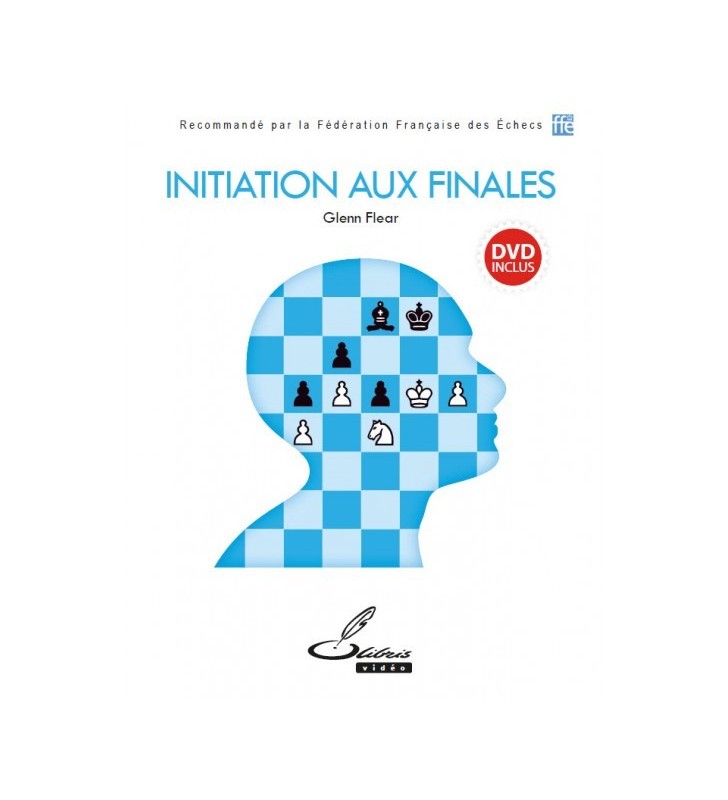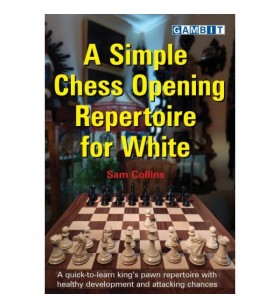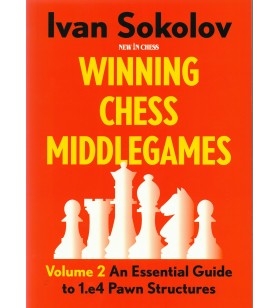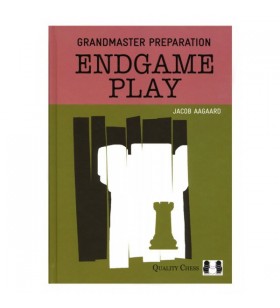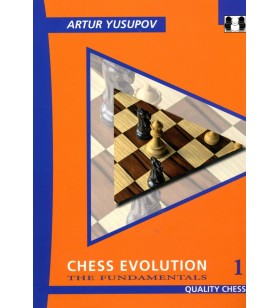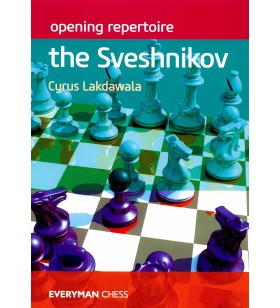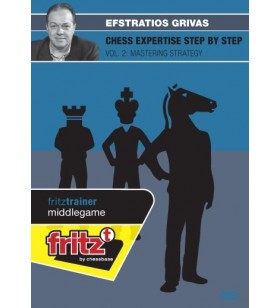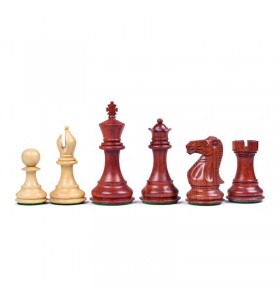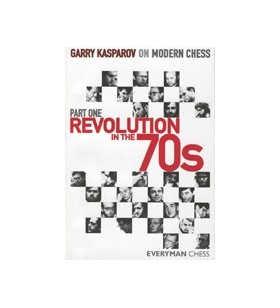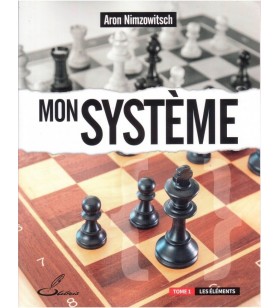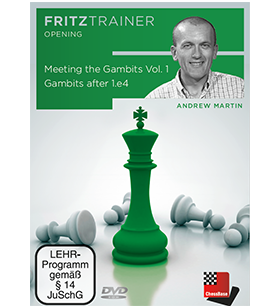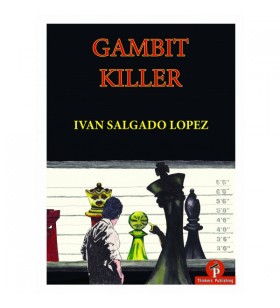- CHESS
- Chess boards and pieces
- Chess books
- Chess books in English and others
- Opening books
- The Ruy Lopez
- Other open games
- Other semi-open games
- The Sicilian
- French Defence
- Pirc & Modern Defence
- Caro-Kann
- Queen´s Gambit
- Slav Defence & Semi-Slav
- Other closed games
- Other semi-closed games
- King´s Indian Defence
- Nimzo & Queen´s Indian
- Grünfeld
- English Opening
- Dutch Defence
- Miscellaneous openings
- General and repertoire books
- Endgame books
- Books on grandmasters
- Books on tournaments
- Books in Dutch
- Miscellaneous
- Chess magazines
- General and middle game books
- Opening books
- Chess books in French language
- Chess books in English and others
- Chess software and DVDs
- Chess computers
- Equipment for clubs
- BOARD & BRAIN GAMES
- GO
- BRIDGE & CARDS & TAROT
- POKER & CASINO GAMES
- PUZZLES & BRAIN TEASERS
- DARTS
Flear - Initiation aux Finales
 Livraison sous 48 heures via Bpost*
Livraison sous 48 heures via Bpost*
Livraison gratuite à partir de €69 (Belgique, France, Pays-Bas, Luxembourg, Allemagne)
 You can cancel your order
You can cancel your order
For fourteen days!
 Secure payments
Secure payments
All payment cards accepted.
16 other product
Sokolov - Winning Chess Middlegames
Have you ever wondered why it takes grandmasters just seconds to see what's happening in a chess position? It's all about pawn structures, as Ivan Sokolov explained in his groundbreaking book Winning Chess Middlegames.
In his 2010 bestseller, Grandmaster Sokolov focused on structures arising from 1.d4 openings; in this new companion guide, 1.e4 players get their turn. This new volume covers a dozen topical structures including various pawn formations in the flexible Ruy Lopez, Italian and Petroff openings. But also Black's doubled f-pawn in the Rauzer Sicilian, the notorious Maroczy Bind, the mysterious Hedgehog, the versatile Sveshnikov and the paradoxical French Winawer. Deeply analysed top-level games illustrate the motifs in all these structures.
Club players who study Winning Chess Middlegames 1.e4 or 1.d4 will:
- significantly improve their middlegame skills
- develop an accurate sense of which positions suit their style
- gain new strategic and practical knowledge of openings
Ivan Sokolov's analysis is profound but accessible, and he doesn't take anything for granted. As reviewer Sean Marsh wrote of the first volume: "The lucid and informative explanations convey a large amount of genuine Grandmasterly wisdom. This is easily one of the best middlegame books of recent times."
Ivan Sokolov is a top grandmaster who was born in Bosnia and lives in the Netherlands. He is a former Yugoslav and Dutch Champion and has beaten World Champions Garry Kasparov, Vladimir Kramnik and Viswanathan Anand. As a coach, he led Uzbekistan to victory at the 2022 Chennai Olympiad. Sokolov has written a dozen highly acclaimed books.
The Isolated Queen's Pawn CD Rom
MARTIN - ABC of the Classical Dutch DVD
Système requis:
Pentium 300 Mhz, 64 Mo RAM, Windows XP, Windows Vista, Windows 7, lecteur DVD-ROM, souris, carte son.
YUSUPOV - Chess Evolution The Fundamentals vol.1 (Hard Cover)
Si quelqu'un s'y retrouve, il me fait signe Voici donc (au choix) le premier volume d'une triplette baptisée Chess Evolution, ou le troisième d'un trio dénommé The Fundamentals - à moins qu'il s'agisse simplement du septième tome d'un projet global qui en comportera neuf Ce qui est sûr, c'est que les 24 nouveaux chapitres truffés d'exemples et bardés d'exercices présentés ici vous feront cogiter quelques dizaines d'heures, et seront certainement profitables. Au boulot !
GRIVAS - Chess expertise step by step vol 2 : Mastering Strategy DVD
Processeur Pentium à 300Mhz ou +, 64MB RAM
Windows XP, Windows Vista, Windows 7
Lecteur de DVD, souris, carte son
Rosewood Stallion Staunton chess pieces
Same as previous one's, but black pieces are in rosewood.
KASPAROV - Revolution in the 70's - part I
Le mal rasé de Bakou ayant donc changé d'avis en cours de route, voici, en lieu et place de l'attendu My Great Predecessors 6, le premier volume d'une nouvelle série consacrée à l'évolution de la théorie des ouvertures à l'époque moderne - celle-ci démarrant, assez arbitrairement, à la retraite de Fischer. C'est l'occasion de passer en revue aussi bien des systèmes effectivement nés durant les années 70 (Sveshnikov...) que d'autres simplement développés durant la même période (Caro-Kann classique avec 4...Ff5), ou encore certains dont l'heure de gloire viendra en fait nettement plus tard (6.Fe3 dans la Najdorf, 4...a6 dans la Slave). Au total, beaucoup de choses intéressantes, mais une impression globale un peu confuse et un intérêt pratique peut-être discutable. A part çà, nos bons amis anglais ont apparemment décidé que la vache à lait ne meuglait pas encore assez fort : ils en ont donc remis une couche sur le prix. Merci, Everyman !

 Français
Français Nederlands
Nederlands English
English